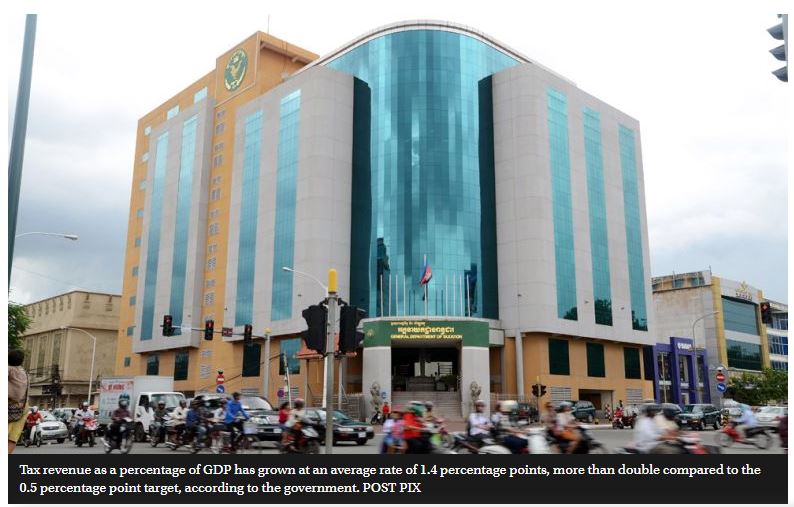Cambodia: Gov’t launches revenue strategy
The government launched the Revenue Mobilisation Strategy 2019-2023 on Thursday.
The 77-page book details key strategies such as modernisation of the General Department of Taxation’s (GDT) fiscal revenue system in response to the increasing demand for service quality, social equity guarantee and sustainability of revenue for the Kingdom’s development.
The strategy mandates the government to strengthen the fiscal and non-fiscal policies in key sectors such as civil aviation, tourism, post and telecoms, economic land concessions, coastal island rentals for development, tourist sites, public enterprises, public institutions, mines and energy, revenue from gaming activity and revenue from state property.
The government said tax revenue collection had been successful under the Revenue Mobilisation Strategy 2014-2018, with the percentage of GDP growing at an average rate of 1.4 percentage points, more than double compared to the target of 0.5 percentage points.
The government collected more than $86 billion in tax revenues from the real estate sector in 2014 and about $184 billion last year, a GDT report said.
The report shows that tax collected from e-commerce businesses in Cambodia, which was paid electronically, was estimated at approximately $112 million in 2017.
Of that, domestic transactions accounted for $6.4 million, while cross-border trade yielded about $105 million.
“Increasing revenue enables the government to increase public expenditures and continue to promote the quality and scope of public services closer to the population and increase investment in priority areas such as education, health and infrastructure,” the report states.
‘Additional taxes needed’
Centre for Policy Studies director Chan Sophal told The Post on Thursday that the government’s previous in-depth reform strategy on taxation had buoyed government spending to 20 per cent of GDP.
However, he says the government must make more effort to collect taxes, in particular in the real estate sector.
He called for additional taxes on sales profits. “We currently impose only a four per cent registration tax on [property], but I heard that the law will add tax on a profit margin of six per cent,” he said.
“The state must impose a large tax on goods that affect people’s health, like alcohol and cigarettes.”
GDT collected over $2 billion in tax revenue last year – up 13.37 per cent from the same period in 2017. The Kingdom collected some $1.68 billion in revenue from customs and taxation during the first three months of this year.
Source: https://www.phnompenhpost.com/business/govt-launches-revenue-strategy


 English
English




